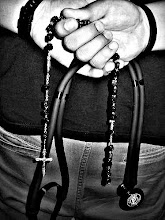
Death by traveling? Yes that’s right. Believe it or not, you can die from riding a plane or a car (& I’m NOT talking about crashes). What I’m talking about occurs on the inside of your body. The picture above represents what’s called a Pulmonary Embolism.
Traveling far distances means sitting for hours at a time, whether by plane, car, bus, train, boat, whatever. What you may not know is that sitting for hours is deadly. When you remain immobile for long periods of time (even in bed), the blood in your veins begin to clot, creating what’s called a thrombus. If the thrombus form in your legs (usually in the femoral vein or saphenous vein), it’s called a Deep Vein Thrombosis. It can form in your arms & pelvis as well. It just sits there until you begin to move again.
Then once you stand up or begin moving…the thrombus breaks off & begins flowing in the blood, creating a mobile clot called an embolus. It eventually reaches your heart…into the right atrium, through the tricuspid valve, down the right ventricle…then BAM! The clot blocks your pulmonary artery, preventing blood from reaching your lungs, & you deprive your body of oxygen. You eventually have difficulty breathing, become cyanotic (blue) from the oxygen deprivation, & eventually can die from respiratory arrest.
Even if the clot is so small that it still bypasses the lungs, it can still enter the left atrium, go through the mitral valve, down the left ventricule, up the aorta…& BAM! It can cut off supply to your brain or heart, causing a Cerebrovascular Accident (stroke) or Myocardial Infarction (heart attack).
Either way, it’s a terrible situation.
So my advice to you is this: If you’re a frequent traveler & go long distances by car, train, plane, whatever…don’t allow yourself to stay immobile for long periods of time. Move around as much as you can, stretch your legs, anything to keep that blood flowing & preventing these things from occurring.
‘Til next time.
Deuces.




No comments:
Post a Comment